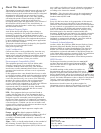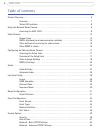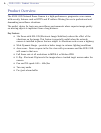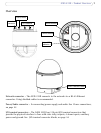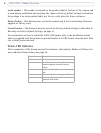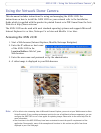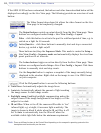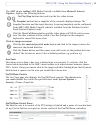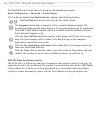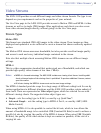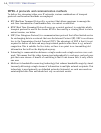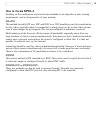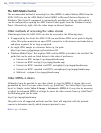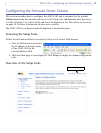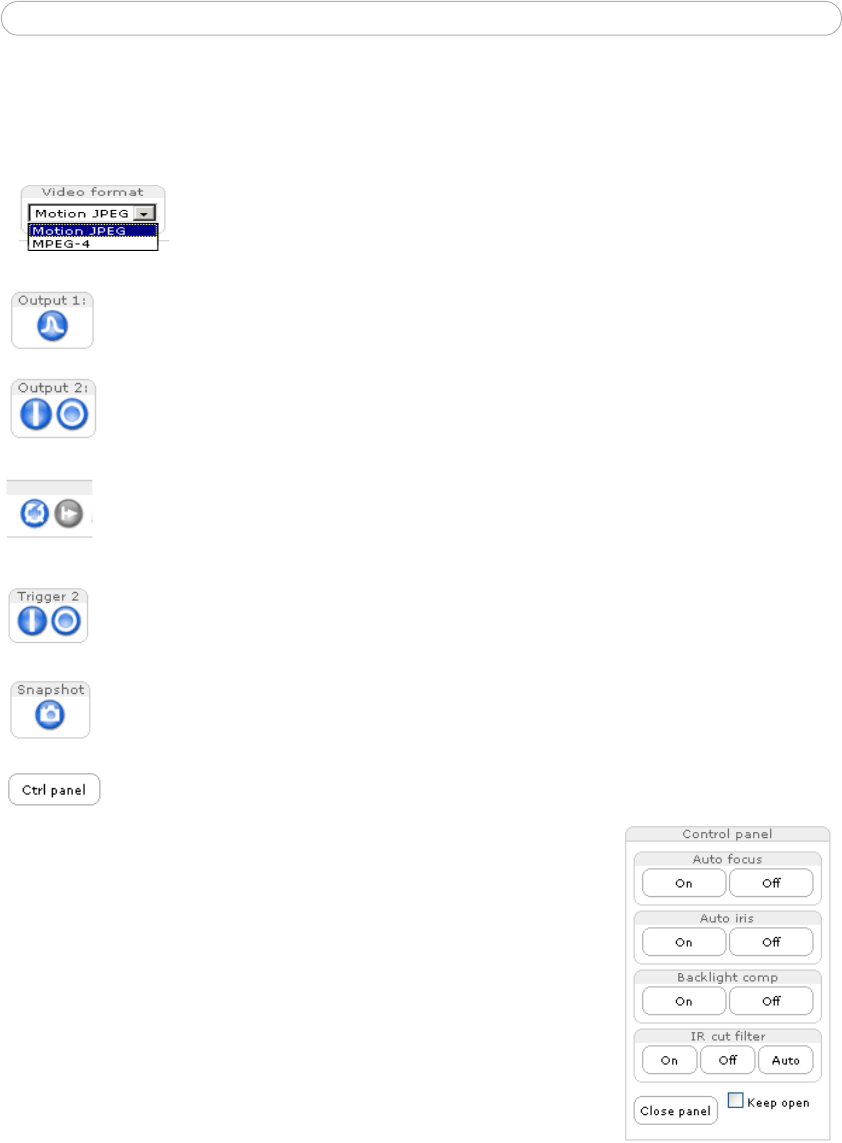
10
AXIS 233D - Using the Network Dome Camera
If the AXIS 233D has been customized, the buttons and other items described below will be
displayed accordingly on the Live View page. The following provides an overview of each
button:
The Video Format drop-down list allows the video format on the Live
View page to be temporarily changed.
The Output buttons control an output directly from the Live View page. These
buttons are configured under Setup > Live View Config > Layout.
Pulse - click this button to activate the port for a defined period of time, e.g. to
switch on a light for 20 seconds.
Active/Inactive - click these buttons to manually start and stop a connected
device, e.g. switch a light on/off.
These buttons start/stop the Sequence Mode. This mode is created in Setup >
Live View Config > Sequence mode and automatically displays the view from
preset positions at set intervals.
The Action buttons trigger an action directly from the Live View page. These
buttons are configured under Setup > Live View Config > Layout. Click these
buttons to manually start and stop events.
Use the Snapshot button to capture a snapshot of the image currently being
displayed in the window. Right-click on the image to save it in JPEG format
on your computer.
Click the Ctrl panel button to access the following buttons:
• Auto focus: Automatically adjusts the image focus.
• Auto iris: Automatically adjusts the amount of light reaching
the image sensor for best image results.
• Backlight comp: Enabling backlight compensation makes the
subject clearer if the image background is too bright, or if the
subject is too dark.
• IR cut filter: When set to off, the camera will be able to “see”
infrared light, e.g. at night, it increases light sensitivity. The
image is shown in black & white when the IR cut filter is off.
Set to Auto to automatically turn the filter off when the
available visible light falls below the minimum requirement.
Note: There are different buttons in the Control Panel depending on the computer’s operating system but the
descriptions and functionality are the same.



